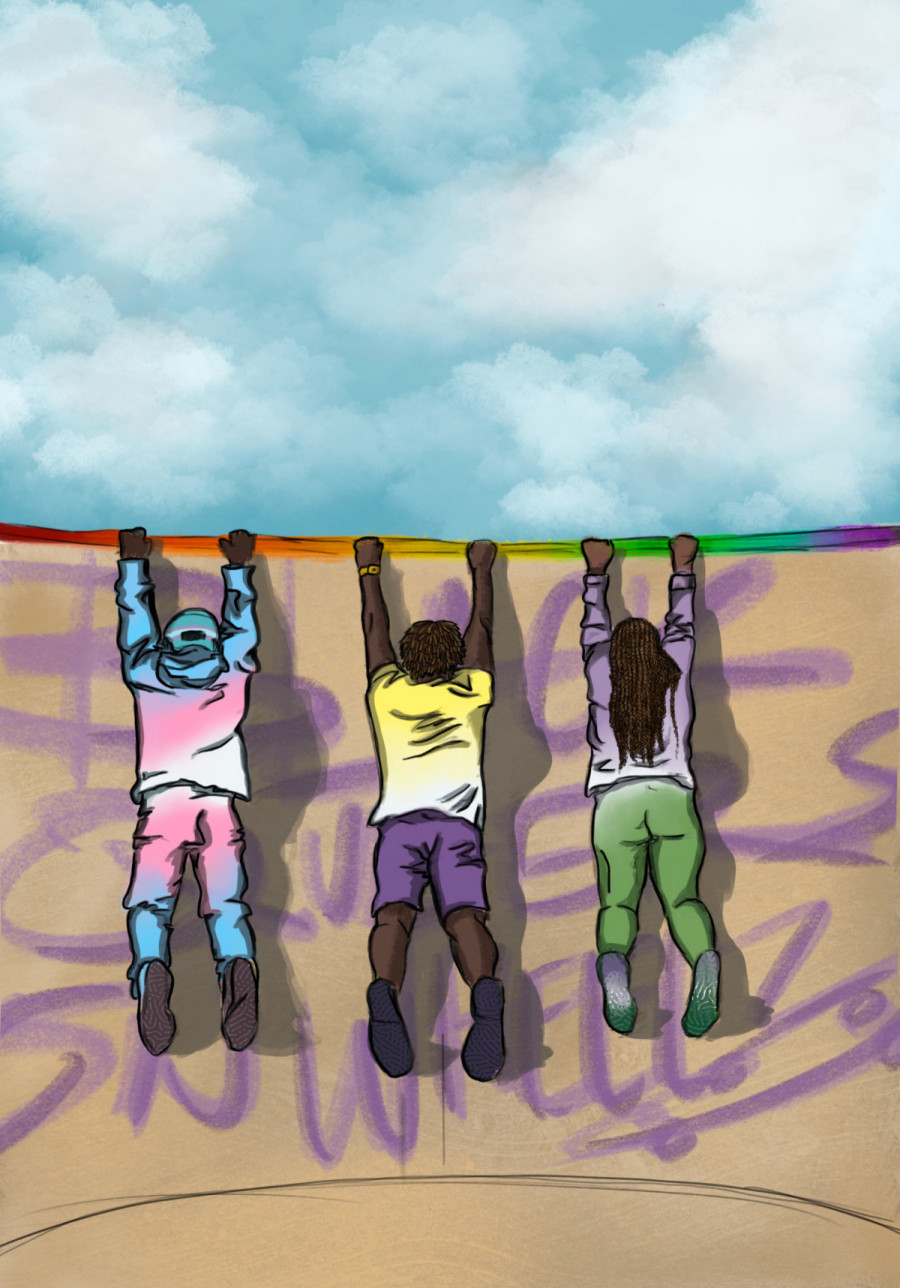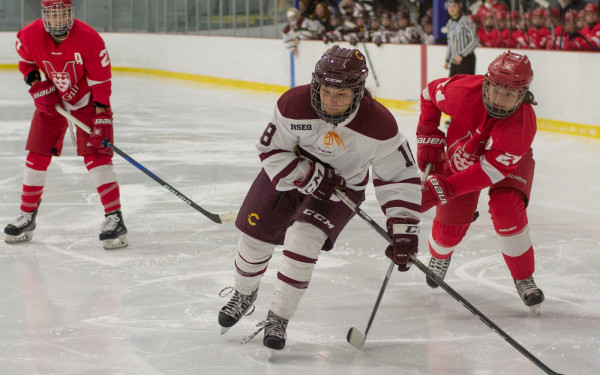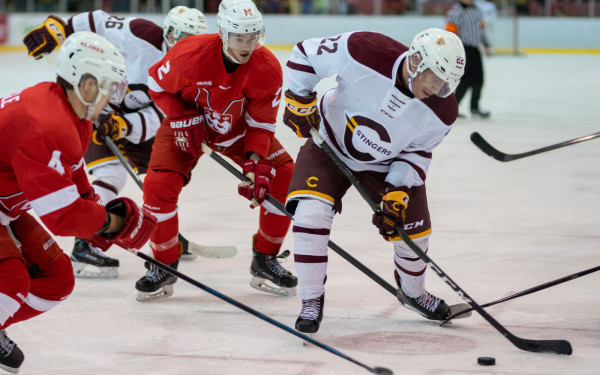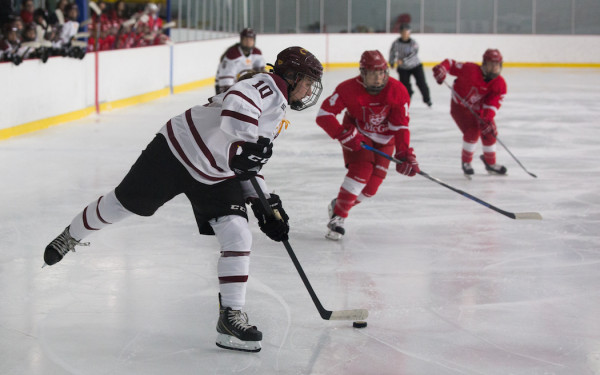Black Queers on Wheels
A Safe Space Tailored to Black Queer Artists on Wheels
Black Queers on Wheels is a sports collective created by and for Black people in the LGBTQIA+ community wanting to practice “art on wheels.” The term was coined by the founder themself, Aman Chevalier, in Montreal.
The collective was initially started by Chevalier in late summer of 2020. They put a callout on Instagram inviting people of all skill levels of skateboarding or other wheel-related sports for a meetup at Jeanne-Mance Park. The gathering was successful and the participants were predominantly Black queers. Chevalier then took the initiative to create Black Queers on Wheels with the goal to foster a safe and inclusive environment specifically tailored to Black queers. The collective had its first official meetup at Parc des Royaux.
Chevalier grew up in Ottawa before moving to Saguenay, to Quebec City and then to Montreal. They have experienced firsthand the differences in the skateboarding scenes in these various places. They described the Montreal skating scene as “white, straight and elitist.” Chevalier explained that after the callout on Instagram, the overwhelming number of responses made it feel necessary to start this organization.
“It was really clear that it was mostly Black queer people who wanted to [participate],” Chevalier explained. ”I felt like there was a need in the community for a space specific for that. Because [...] being queer isn't enough. Being white isn't enough. Being a woman isn't [enough], all [the intersections] together were important for me.”
“Skateboarding is of the World,” said Neftalie Williams in an article by Larry Lanza. Williams is a sociologist that uses the lens of skateboarding culture to explore global concerns of race, diversity, identity and youth empowerment. He further explained how every social issue that affects the world consequently affects the skateboarding community and industry.
Social media videos portray older tattooed skaters teaching younger kids to ride down a half-pipe. The skating community is arguably advertised as open and welcoming to people of different levels and backgrounds.
When skateboarder Rashad Murray was asked if he had seen or experienced racism within his own skate community, Murray’s response revealed another truth. He explained that although no one had called him any harsh slurs, he would experience microaggressions that would make him uncomfortable.
Chevalier attested to similar experiences of discomfort. “I felt a little bit like a zoo animal sometimes or that I had to perform or prove myself,” they said. Furthermore, as a masculine presenting person, Chevalier noticed how that appearance gave them privilege, which was further unsettling.
The beauty of having a lot of intersecting identities is that often your experience informs a lot of what you’re about to say, and it’s most likely going to be a really good idea. — Aman Chevalier, Black Queers on Wheels founder
Intersectionality is especially important in order to cater to the needs of those affected by everything and anything that can marginalise people such as race, gender, sexual orientation, class, physical ability, etc., as explained by Bridie Taylor of WomanKind Worldwide. For this reason, collectives like Black Queers on Wheels are essential.They provide a space for marginalized peoples to gather and an opportunity to build a community of people who share similar experiences.
Chevalier expressed that organizing and maintaining a collective is difficult. Although there is a demand for activities and spaces like Black Queers on Wheels, the issue lies in getting involved. When asked what struggles they faced as the sole organizer, they explained, “It was difficult managing a fund and the social responsibility that comes with the Instagram account.”
This unfortunately led Chevalier to be overworked and, with time, they decided to take a break from managing the collective, including obtaining funds and event organization. Although there were other participants who offered to work with them on the project, it was challenging to arrange meetings that could accommodate everyone’s personal commitments. “As much as I tried to get more people involved, there was simply a lack of engagement, especially on social media,” they said.
Chevalier advises that for those who struggle to get more involved you must trust your ideas. Despite there being a community of people who would like to engage and participate, there seems to be something holding them back.
“The beauty of having a lot of intersecting identities is that often your experience informs a lot of what you're about to say, and it's most likely going to be a really good idea,” Chevalier said. Their idea implies every lived experience brings a different perspective to the conversation. This communication is vital towards creating a safe space for everyone, especially within the skateboarding community.
Chevalier, as of now, is not sure if they want to continue with Black Queers on Wheels, marking now an opportune moment for Black queers—skaters and non-skaters alike—to step forward and continue to build on the organization’s moral foundation. Black Queers on Wheels has the option to branch out into collaborative projects with other collectives and organizations, all it needs is a kick and a push in the right direction.
This article originally appeared in Volume 43, Issue 7, published November 22, 2022.



4_600_375_90_s_c1.jpg)


